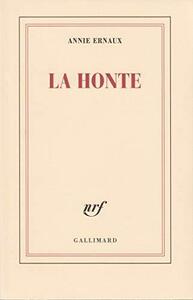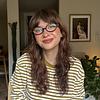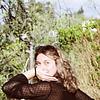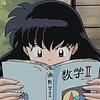You need to sign in or sign up before continuing.
Take a photo of a barcode or cover
3.5/5
Um fato marca a passagem da infância para a adolescência de Ernaux. Em um domingo de junho de 1952, seu pai tenta matar sua mãe. A partir dessa descrição inicial, poderia parecer que estariamos diante de um livro sobre o feminicídio. Longe disso. Apesar da forte impressão que lhe permaneceu, embora pouco se lembre do que levou àquela cena, e que logo a seguir, seus pais já estariam em boas relações, o que aparentemente mais marcou a autora foi a sensação de quebra de algo dentro de si, como se lhe abrisse uma nova percepção do mundo, de sua posição nele, assim como de sua família.
Annie Ernaux leva-nos assim a seguir com ela a reconstrução mental dos anos 1952, para tentar perceber o que se encontrava na raiz daquele ato insensato de seu pai. Mas mais do que falar de seus pais, ela procura perceber o seu lugar na cidade de Y., sua divisão em classes sociais de acordo com a situação geográfica de uns e de outros. Apesar de suas origens humildes, Ernaux estudou em uma escola particular, onde teve forte formação religiosa. Marcada fica também a viagem à Lourdes com o seu pai, pois é ali que ela também percebe a violência que sofre o seu pai, massacrado pela indiferença de garçons em um restaurante chique durante a viagem de retorno.
E é nesse confronto entre mundos, antes e depois da perda da inocência infantil que se desenha o livro, no confronto entre a menina religiosa e a mulher adulta e contestadora. Entre a normalidade do dia a dia com sua família com aquelas oriundas das diferenças de classe social em relação às colegas, companheiros de viagem etc. Um fundo fosso de diferenças que a isolava, a envergonhava, como muitas vezes acontece-nos nessa mesma passagem da infância para a adolescência, em que nossos pais, nosso mundo parecem nos indicar sempre razões para ter vergonha.
E no entanto, essas passagens são necessárias, por mais que nos causem espanto, vergonha, pois são elas que nos desperdam para perceber o mundo com olhos de ver e explorar, que nos auxiliam no processo de amadurecimento.
A vergonha, assim, pareceu-me mais um complemento ao seu O lugar, o qual traça com mais e melhores detalhes a vida de seus pais, e sua vida com eles, até o seu afastar não só daquele mundo com costumes por vezes quase semi-medievais, mas da menina que um dia foi, e que ficou perdida em algum lugar do passado.
Um fato marca a passagem da infância para a adolescência de Ernaux. Em um domingo de junho de 1952, seu pai tenta matar sua mãe. A partir dessa descrição inicial, poderia parecer que estariamos diante de um livro sobre o feminicídio. Longe disso. Apesar da forte impressão que lhe permaneceu, embora pouco se lembre do que levou àquela cena, e que logo a seguir, seus pais já estariam em boas relações, o que aparentemente mais marcou a autora foi a sensação de quebra de algo dentro de si, como se lhe abrisse uma nova percepção do mundo, de sua posição nele, assim como de sua família.
Annie Ernaux leva-nos assim a seguir com ela a reconstrução mental dos anos 1952, para tentar perceber o que se encontrava na raiz daquele ato insensato de seu pai. Mas mais do que falar de seus pais, ela procura perceber o seu lugar na cidade de Y., sua divisão em classes sociais de acordo com a situação geográfica de uns e de outros. Apesar de suas origens humildes, Ernaux estudou em uma escola particular, onde teve forte formação religiosa. Marcada fica também a viagem à Lourdes com o seu pai, pois é ali que ela também percebe a violência que sofre o seu pai, massacrado pela indiferença de garçons em um restaurante chique durante a viagem de retorno.
E é nesse confronto entre mundos, antes e depois da perda da inocência infantil que se desenha o livro, no confronto entre a menina religiosa e a mulher adulta e contestadora. Entre a normalidade do dia a dia com sua família com aquelas oriundas das diferenças de classe social em relação às colegas, companheiros de viagem etc. Um fundo fosso de diferenças que a isolava, a envergonhava, como muitas vezes acontece-nos nessa mesma passagem da infância para a adolescência, em que nossos pais, nosso mundo parecem nos indicar sempre razões para ter vergonha.
E no entanto, essas passagens são necessárias, por mais que nos causem espanto, vergonha, pois são elas que nos desperdam para perceber o mundo com olhos de ver e explorar, que nos auxiliam no processo de amadurecimento.
A vergonha, assim, pareceu-me mais um complemento ao seu O lugar, o qual traça com mais e melhores detalhes a vida de seus pais, e sua vida com eles, até o seu afastar não só daquele mundo com costumes por vezes quase semi-medievais, mas da menina que um dia foi, e que ficou perdida em algum lugar do passado.
Annie Ernaux tiene esa forma tan suya de describir paisajes cotidianos de una manera tan envolvente.
Ik zie het boek als een companian piece bij De Jaren, alsof ze een alinea uit die tekst gepakt zou hebben en uitvergroot tot een novelle. De tekst houdt ook op op het moment dat alles over deze gebeurtenis wel gezegd lijkt te zijn en dat is prettig maar ik heb het idee dat Ernaux nog wel meer over het onderwerp schaamte kan schrijven maar daar moet ik maar verder haar andere boeken voor induiken me dunkt.
Annie Ernaux began this book with "My father tried to kill my mother one Sunday in June" and proceeded to write powerfully and truthfully how shame and trauma affected her life from then on. I'm sure many of us have that Sunday in June when everything that happens afterward is filtered through this tinted lens that we didn't understand at the time, but one that keeps haunting us for years until one day we realise that it has subtly yet irrevocably changed us.
shame is another thread in the tapestry of themes than run through all of annie ernaux’s books, focusing in on a traumatic event in ernaux’s childhood and the ways in which it affected her life. in particular, she takes an in-depth look at her neighborhood and school as they were when she was 12 years old in 1952, processing her father’s violent outburst against her mother. we see how religion, education, and the small town she lived in influenced her upbringing. the observations and descriptions reminded me in some ways of her book exteriors - snapshots of the outside world.
even though the inciting event for this book is very personal and relationship-based, i found that on the whole this is a zoomed out look at ernaux’s environment rather than a deep dive into her family relationships. for me, ernaux shines the brightest when she’s digging into the personal. so, this wasn’t my favorite but i’m never gonna be mad about an annie ernaux book! the prose is sharp and sparse as always. i finished this in one day and feel like it adds another dimension to the annie ernaux cinematic universe, if you will.
reflective
tense
medium-paced
reflective
fast-paced
"Vielleicht macht das Erzählen, egal in welcher Form, jede beliebige Tat, sogar die dramatischste, zu etwas Normalen. Das Schlimmste an der Scham ist, dass man glaubt, man wäre die Einzige, die so empfindet."
Annie Ernaux puso en palabras lo que es crecer en un pueblo, en donde las barreras de lo privado y lo público son confusas. Pero, más allá de su descripción de una vida a la que muchas nos acercamos al vivir en un pueblo, habla de lo que una cree es innombrable, de lo que atormenta nuestra niñez: la vergüenza, eso que nos acompaña mientras crecemos. En sus palabras: «La vergüenza no es más que repetición y acumulación.»
dark
emotional
reflective
sad
fast-paced
i'm thinking i don't really understand the "pace of a book".
this was my first book by Ms. Ernaux and going from having multiples of quotes of her on my tumblr, i'm happy this was my start. as unfortunate as it is, shame is something i'm very familiar with and as i dig deeper on myself, trying to understand it, found myself relating a lot to this recount, so it was very enjoyable and emotional.
it's a really nice book that you can finish one Sunday afternoon, little before the sunsets starts and the lights coming from the windows begin to shadow, tranquil but your insides feel more than you like, some tears, some sniffs, some release; luckily, some liberation comes to you, later at night, when you can't sleep and think about your own childhood terrors.
this was my first book by Ms. Ernaux and going from having multiples of quotes of her on my tumblr, i'm happy this was my start. as unfortunate as it is, shame is something i'm very familiar with and as i dig deeper on myself, trying to understand it, found myself relating a lot to this recount, so it was very enjoyable and emotional.
it's a really nice book that you can finish one Sunday afternoon, little before the sunsets starts and the lights coming from the windows begin to shadow, tranquil but your insides feel more than you like, some tears, some sniffs, some release; luckily, some liberation comes to you, later at night, when you can't sleep and think about your own childhood terrors.






